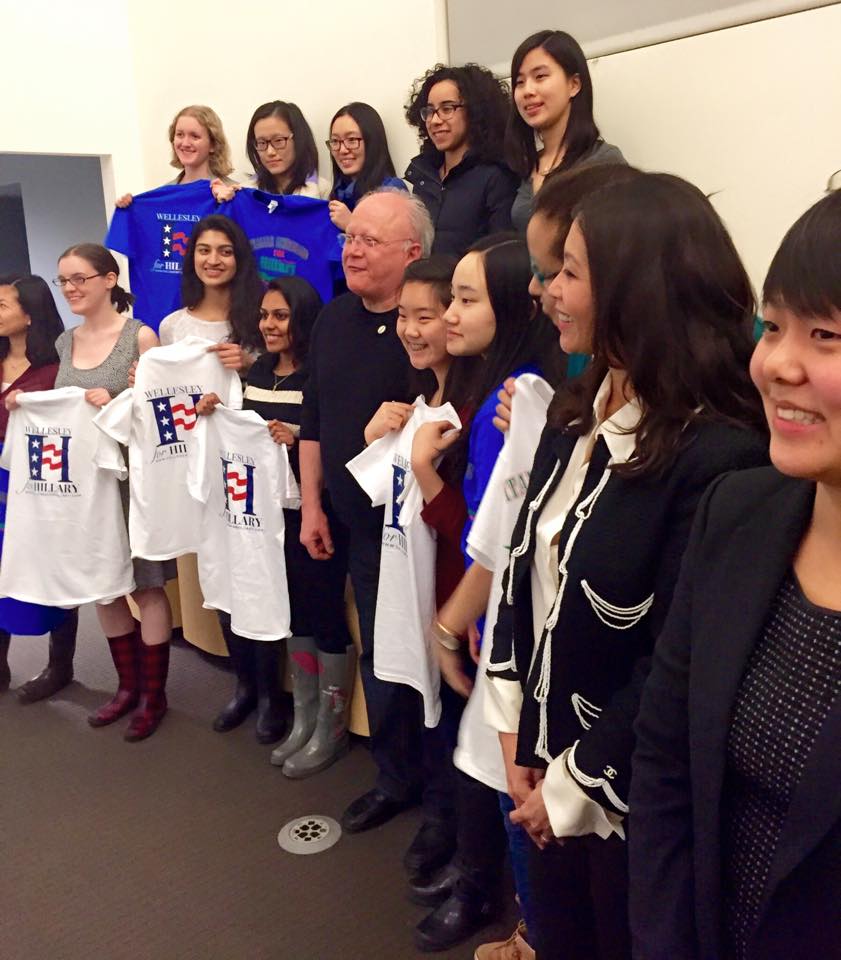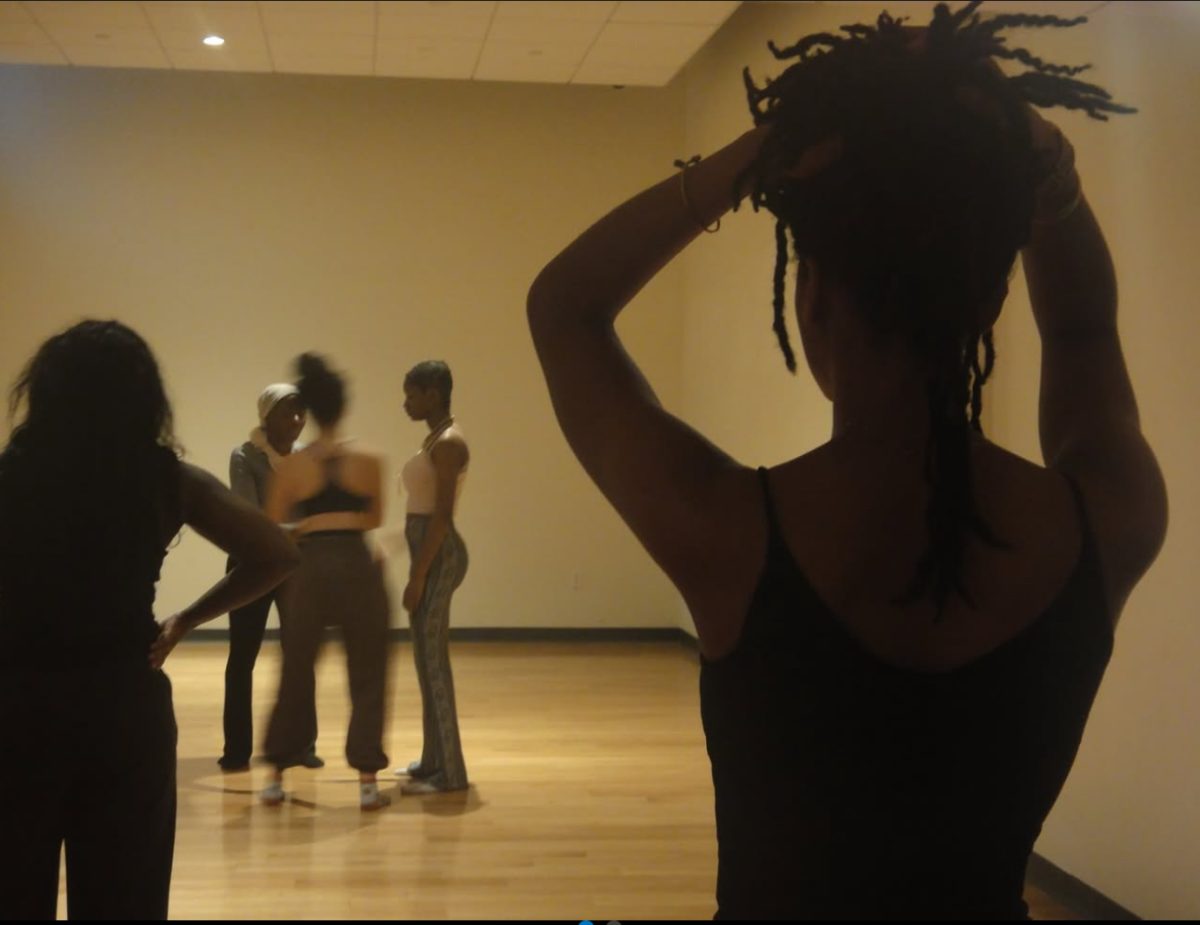Laurelle Cheng ’15 joined her sister Queenie Clemente and brother-in-law Paul Clemente in an effort to prove that Hillary Clinton is different from how mainstream media portrays her. Together they began the grassroots political organization Colleges for Hillary to help humanize Clinton through the medium of film.
This is Cheng’s first time participating in a campaign. However, her sister and brother-in-law, while living in New York, have both had some previous experience. Queenie Clemente campaigned for President Obama during the 2008 election. Paul Clemente worked in Senator Daniel Patrick Moynihan’s office in New York.
“It’s pretty fun and interesting. It’s nice to have my brother-in-law and sister guide me through this because they have this political background. I definitely want to learn more about U.S. politics,” Cheng said. She is originally from Hong Kong, China, but is staying in the U.S. after graduation this year.
The organization chose Wellesley College as the site of inauguration for their first screening of a documentary called “Hillary’s Pizza Maker: The Human Side of a Leader.” The documentary features Rocco DeFazio, a small business owner and pizza maker from Troy, New York.
Before showing the film, DeFazio introduced himself and talked about his idea of the ideal presidential candidate using a pizza metaphor.
“The crust is the foundation of the candidate. Can they be relied on to do the job? Number two is the sauce. It’s the flavor that really enhances the pizza. When you look at the flavor of the candidate you’re looking at, do they relate to the people? Are they colorful? The sauce of the candidate is what makes them interesting. Toppings: Everybody loves different toppings. Does the candidate play well to a wide variety of people?” DeFazio said.
The documentary, directed by Yuri Morejón and Marcela Garces, was released in summer 2014. It featured an interview of DeFazio in which he talks about his parents’ immigration from Italy to the U.S. and how they settled down in New York. His father worked to make immigration for Italians easier at the time by successfully lobbying for legislation under Jimmy Carter.
The film then transitioned to DeFazio’s work to improve his neighborhood, which is how Clinton came to know him while she was a U.S. Senator. Clinton became involved in his efforts and developed a relationship with his family, including his mother and father. She also filmed a campaign video in DeFazio’s area.
“It moved me to tears, the film. It really put Hillary in a different light. It’s not a slick Hollywood production. It’s real. It’s really powerful. And I think modern day politics needs more of that,” Paul Clemente said.
Especially after working with her to help his neighborhood, DeFazio found that Clinton fit all of his criteria for a good candidate. He became a passionate advocate of Clinton.
“She just wants to know more and know about you,” he explained. “I think the hardest group for Hillary to reach to right now would be college kids and so I think showing this film to college kids might give her a different understanding of who she is.”
The students who watched the film were also asked to take a survey of how they perceived Clinton as a candidate before and after the event. Colleges for Hillary included questions such as how students thought Clinton related to the middle class and whether they believed Clinton cared about small businesses.
Cheng could not report the results of the surveys yet; however, students who attended reflected on why they attended the event and how it changed or solidified their perceptions of Clinton.
“ [The documentary] was very much focused on the pizza business and on Rocco’s family history, but it also showed Hillary’s involvement in Little Italy, and in supporting small business owners. I think the film shows a more human and relatable side to Hillary than the media generally portrays,” Priyanka Ram ’17 said.
Danni Ondraskova ’18 chose to attend the event in order to see a side of Clinton that contradicted the common portrayal of her in the media.
“I wanted to attend the event because I wanted to see a different portrayal of Hillary than the frigid one often given by the media. I also thought it would be interesting to hear about her character and personality from an insider perspective,” Danni Ondraskova ’18 said. “The documentary was inspiring because it showed Hillary interacting with ordinary small-town people.”
This feedback can give the co-founders of the organization more information about how to shape their events as they hold more on college campuses throughout the country. They are using Cheng’s connections with students in different on-campus political organizations in Berkeley College, Northeastern University, Mount Holyoke, as well as the Clementes’ alumni connection with Harvard University.
The organization, which has a Facebook page, is launching an official website soon. In addition, with the help of DeFazio, the three co-founders will use the summer to plan ways to reach out to voters with events on more college campuses.
“Our long term vision is to make our own movies. Instead of having just one documentary, we can have a couple more to give variety and show different sides of Hillary that can’t be seen in just one documentary,” Cheng said.
Cheng’s plan for the future of Colleges for Hillary includes starting an organization on Wellesley campus to continue her work after she graduates.
Photo Courtesy of Colleges for Hillary






